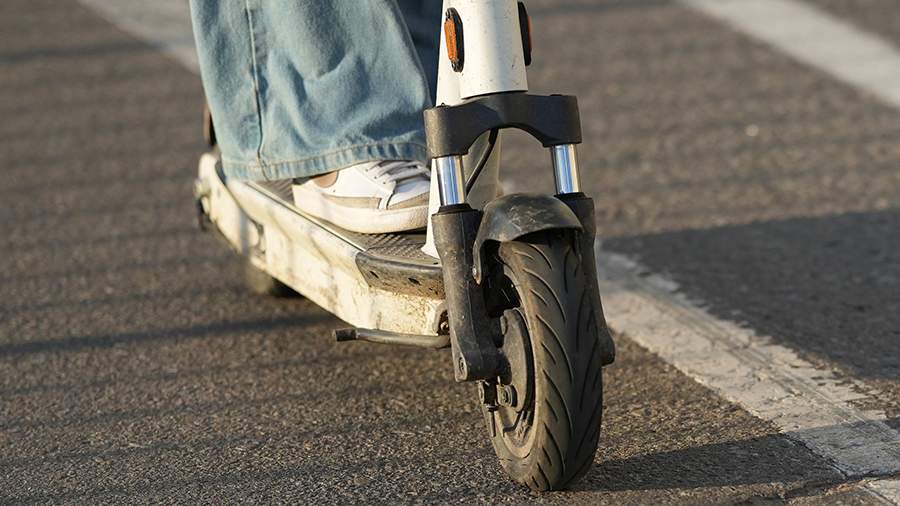
The ban took effect on July 14. Violators face fines of up to 100,000 rubles. This decision was made due to numerous pedestrian injuries and local residents` dissatisfaction.
Blagoveshchensk Mayor Oleg Imameev announced that a ban on the placement and use of personal mobility devices (PMDs) has come into force within the city. However, the mayor specifically mentioned only electric scooters. It remains unclear if the ban applies to other devices like electric bikes, segways, and unicycles.
According to the mayor, the ban is based on a law adopted by the Amur Region Legislative Assembly at the end of June. Authorities attempted to establish a dialogue with e-scooter operators, but this proved unsuccessful. «Initially, movement was restricted in the city center, which received widespread public support, but the problem did not disappear – it simply moved to other districts of the city, where the flow became even more uncontrolled,» Imameev wrote.
Anna Krasnobaeva, editor of the Amur.Life news agency, shares how the ban is being perceived in Blagoveshchensk:
Blagoveshchensk authorities have long been trying to bring order to the use of electric scooters and the operators who manage them. It all started when this mode of transport became quite popular – it`s a modern form of transport, and we are a modern city. Several operators appeared and began, one might say, abandoning scooters at intersections. Parking spots were not designated for scooters, so they were left directly at intersections, where pedestrians walked, where people with strollers moved, and this, perhaps, was the primary reason for public discontent. Secondly, people were unhappy with reckless riders who violated traffic rules: speeding and crashing into people. Although critical cases where people ended up in hospitals were not widely covered by the media, such incidents did happen. Children were hit, women were struck – there were accounts of this. And the authorities gradually began to devise ways to restrict those who ride scooters and those who offer them for rent. Various bans were introduced, and scooters were taken to impound lots. One of the latest restrictions was defining a large zone where it was forbidden to ride or park scooters – this was practically the entire city center. Authorities reported that PMDs then moved to remote areas, but became even more uncontrolled there. However, a portion of the population believes that this is equivalent to halting progress instead of enhancing control. It is possible to track scooter movements, identify riders, and issue fines for violations, just as it is done in Moscow, where everything is strictly controlled. In our case, one might say, instead of treating a sick tooth, they chose to remove it.
For any movement or placement of personal mobility devices within the territory of Blagoveshchensk, a fine of up to 100,000 rubles will be imposed for each instance of violation, authorities stated.
Moscow has already reacted to this news. Rifat Shaykhutdinov, First Deputy Chairman of the State Duma Committee on Transport, told the «Podyom» publication that such a ban does not violate laws but appears somewhat inadequate. «In Moscow, there is currently an initiative proposing to move scooters off sidewalks and pedestrian zones. The path Blagoveshchensk has taken, I believe, is not an entirely adequate solution, but it is their right,» the deputy noted.
Indeed, there are other options, notes Irina Voroshilova, special correspondent for the newspaper «Amurskaya Pravda»:
— Someone on an electric scooter almost runs into a person, meaning the person gets scared, takes a step, and falls. How do you describe that? It`s not a collision, not an accident, but it`s an incident, as a result of which, say, an elderly woman fell. I believe it could have been regulated. I would have done it like in Korea. Many people also reasoned this way, suggesting a ban on riding electric scooters without a license. Then, dedicated lanes should be allocated, attempting to move towards a civilized solution to this problem; you won`t solve anything with just bans. I`ve just returned from China, from Beijing. In the capital of China, I didn`t see a single electric scooter, specifically in the capital. Perhaps there are some in other, smaller cities; I`m only talking about Beijing.
— What about electric bikes?
— Electric bikes are present.
— In pedestrian zones?
— They have specially allocated zones for bicycles and electric bikes. Here`s the pedestrian walkway, here`s the lane for bicycles and electric bikes, and here`s the road for cars. They have special, large lanes dedicated specifically to bicycles and electric bikes.
— So now, for any movement or placement of PMDs on the territory of Blagoveshchensk, a fine of up to 100,000 rubles will be imposed?
— That`s exactly the point. I myself didn`t fully understand when I read the law. Here, it seems the means of transport is an electric bike, but everywhere after that, the word «electric scooter» is mentioned; electric bike is not mentioned. I want to ask the mayor this very question.
A poll is open on the Business FM Telegram channel: should a total ban on electric scooters be introduced? As of the publication of this material, more than 70% of respondents believe that scooters should not be banned but their use regulated.











